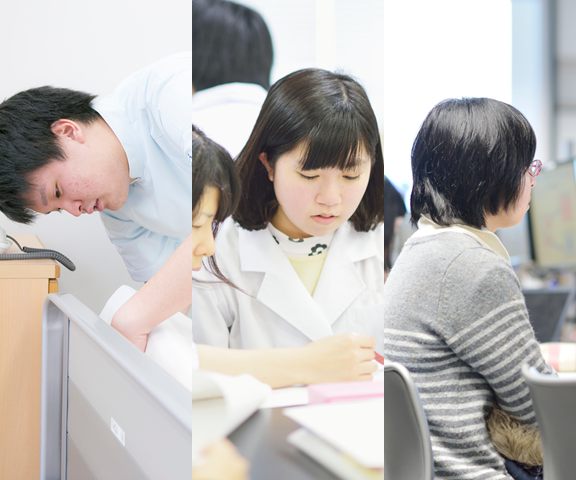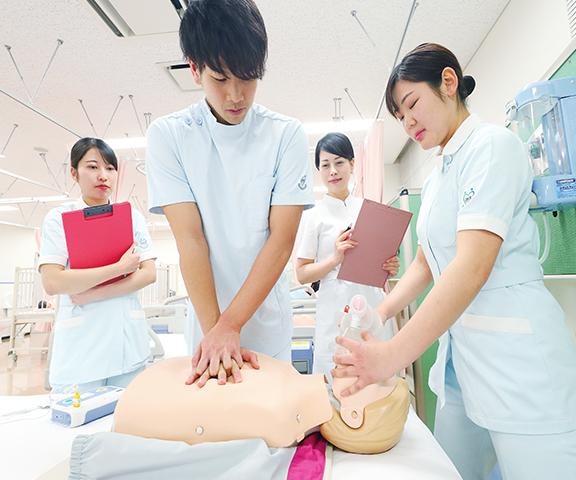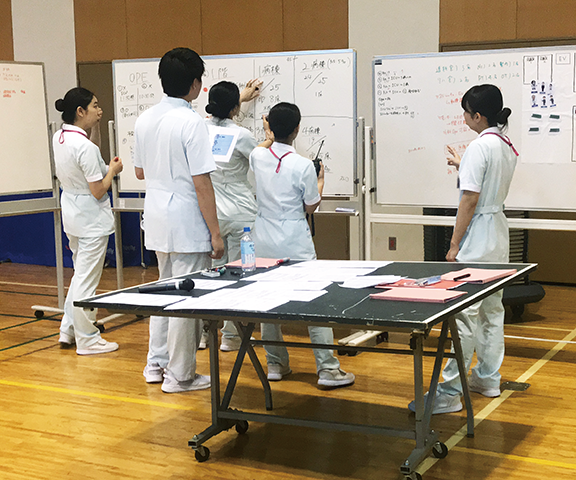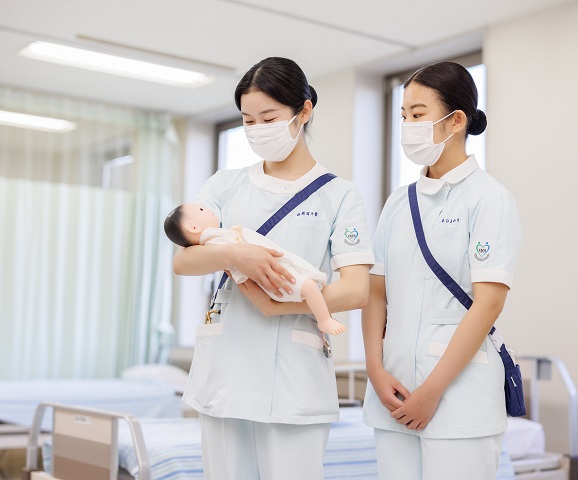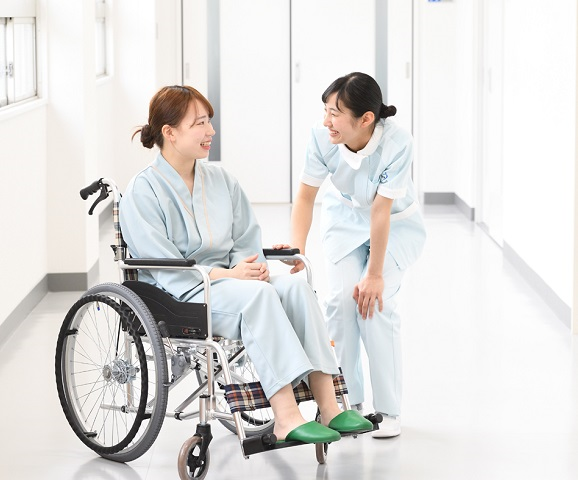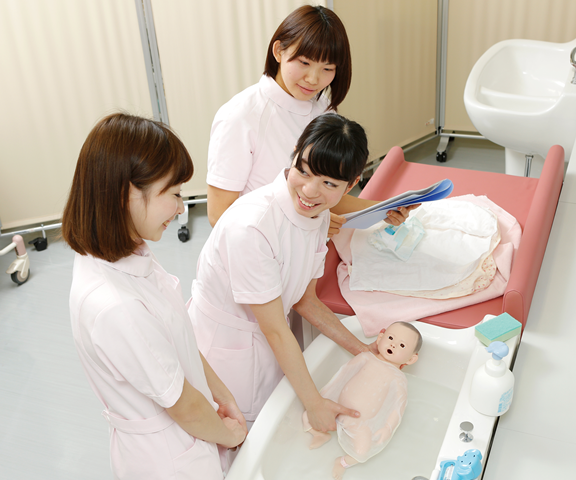Giving graduates the professional knowledge and skills they need to contribute to next-generation healthcare teams.
- Division of Nursing
- Division of Medical Nutrition,
Nutritional Management Course - Division of Medical Nutrition,
Medical Laboratory Science Course - Division of Healthcare Informatics


